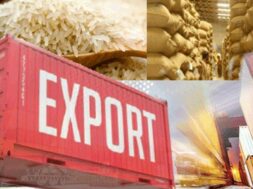
Grain exports: India defends ban at the WTO
Virendra Pandit
New Delhi: India, which had offered to provide food to the world earlier this year but had to backtrack because of projections of depleted crops and climate woes, has defended its ban on the export of wheat and rice.
At a World Trade Organization (WTO) meeting last week in Geneva, countries like the US and Senegal, and the European Union, questioned India’s decision, saying it could have adverse implications on global markets.
In May, India had, because of the fresh projections of an erratic monsoon, restricted the export of wheat and wheat products to enhance domestic availability. In September, it also banned the export of broken rice and imposed a 20 percent export duty on non-Basmati rice, except for parboiled rice, to boost domestic supplies amid a fall in area under paddy crop in the current Kharif season.
India clarified that the ban on the export of broken rice, used in poultry feed, followed a rise in the grain’s exports in recent months which put pressure on the domestic market. Food security concerns caused wheat export curbs as well.
However, these measures are temporary and under continuous monitoring, the media reported, quoting an official.
Senegal, a major importer of India’s broken rice and other rice products, urged India to keep trade open in these difficult times to ensure food sufficiency.
At the WTO meeting, several countries such as Thailand, Australia, Uruguay, the US, Australia, Canada, Brazil, New Zealand, Paraguay, and Japan favored consultations with India regarding the use of the peace clause to protect its food programs against action from trade disputes.
In April, India invoked the peace clause, for the third time, for exceeding the 10 percent ceiling on the support it offers to rice farmers. It informed the WTO that it has used the clause to provide excess support measures to rice farmers for the marketing year 2020-21 to meet the domestic food security needs of its poor population.
Under the peace clause, WTO member countries refrain from challenging any breach in the prescribed subsidy ceiling given by a developing nation at the dispute settlement forum of the global body.
Subsidies over and above the prescribed ceiling are seen as trade distortion. The limit is fixed at 10 percent of the value of food production for developing countries like India.
New Delhi has strongly pitched to find a permanent solution to the issue, but there has been no progress so far.
The 164-member Geneva-based multilateral body WTO deals with global exports and import-related norms. It also adjudicates trade disputes between the member countries.













